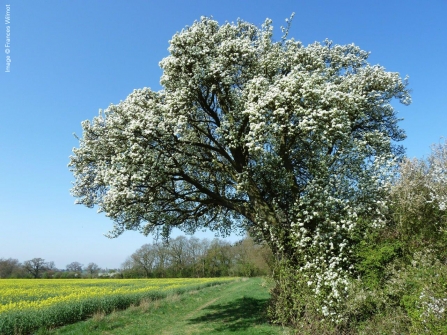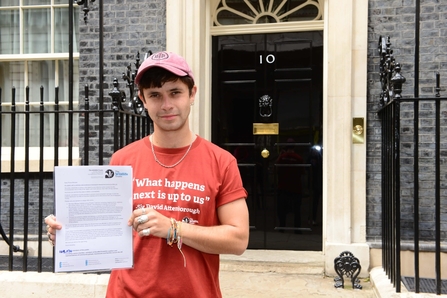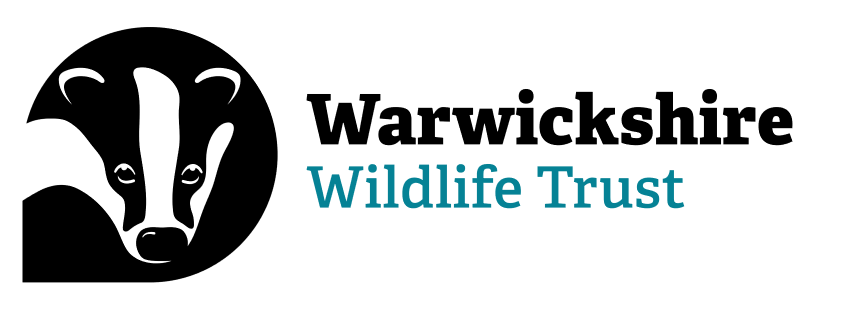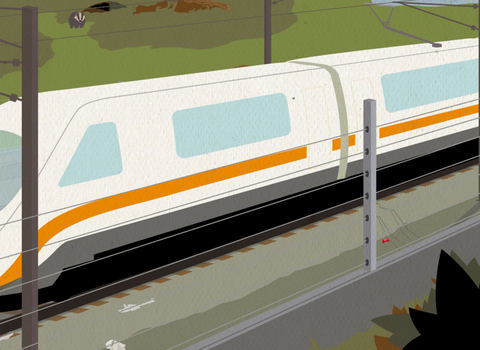See the latest campaign update
The High Speed Two (HS2) railway between London and Birmingham is having a significant impact on wildlife and wild places along the entire route, and Warwickshire Wildlife Trust continues to express deep concerns and opposition to HS2 Ltd's actions.
Ecosystems permanently damaged. Irreplaceable habitats destroyed. Taxpayer's money spent on restoration wasted. Wildlife extinctions at a local level. This could be nature’s fate if the current plans for HS2 continue.
In the most comprehensive environmental assessment to date we revealed the sheer scale of potential damage from HS2. Our 2020 report showed that the deep cut HS2 will make across the landscape could stop nature’s recovery in its tracks. As the costs to nature escalated, we urged the UK Government to stop and rethink the project.
HS2 Phase 1 will cut a swathe from London to the West Midlands.
Phase 2a will affect North Warwickshire.
HS2 in Warwickshire
Hundreds of important habitats and special wild places are under threat, and we are concerned that ancient woodland, hedgerows, meadows and other important habitats are at risk. Locally, 17 important sites for nature conservation will be destroyed by the construction. At least 37 sites, including South Cubbington and Crackley woods, will be partially destroyed and fragmented.
Yet, there has not been a Strategic Environmental Assessment and the compensation plans being put forward are not good enough.
The Government and HS2 Ltd acknowledge that the route can't be delivered without extreme harm to the natural environment. The deep cut HS2 will make through Warwickshire will have devastating lasting impacts for our local wildlife and habitats.
The potential damage is too great - especially while we are facing an ecological and climate emergency. We need HS2 Ltd to stop and rethink.
When HS2 was first mooted, Warwickshire Wildlife Trust stated that whilst in principle we support proposals for a more sustainable transport system throughout the UK which reduces our dependency on cars and aviation, a new railway line could only be truly sustainable if the proposed economic gains were sufficiently balanced with the potential environmental impact. The Trust scrutinised not only the potential environmental impacts of the route, but the social and economic case put forward by the government to justify the soundness of the route and the financial viability of undertaking such a project.
As we have from the start, the Trust continues to highlight the destruction that would be caused to ancient woodlands, and the fact there will be no net gain for wildlife along the route. In 2013, the Trust brought a judicial review against the scheme and in 2015, petitioned against it twice at Select Committee. Watch footage here, from 11:14 to 12:32.
At every stage, Warwickshire Wildlife Trust has used all possible legal means to fight for the protection of local wildlife.

The 250-year-old Cubbington pear tree was felled as it stood in the path of HS2.
When the first phase of HS2 was given Royal Assent in February 2017, the project shifted from a theoretical possibility to a reality.
It was at this point that the Trust reacted accordingly to limit the effects on wildlife by working with HS2 Ltd to get the best possible outcome for nature. In its capacity as part of Warwickshire, Coventry and Solihull Local Nature Partnership, the Trust belongs to the “West Midlands Combined Authority HS2 Environmental and Landscape (E & L) Board” and through this is able to attend meetings and engage with HS2 Ltd and their partners at a high level.
The Trust recognises the right of local groups and individuals to peaceful protest, and the benefits that this approach can achieve. At the same time we believe the best use of the charity's expertise and resources is to use our leverage at other levels that are only open to organisations such as the Trust, to achieve the same goal - namely the best possible protection of wildlife and wild places along the proposed route of HS2. By working for the same outcome but from different angles, we are confident that Warwickshire Wildlife Trust, its members and local residents can together have a bigger impact for wildlife.
We continue to challenge HS2 Ltd in order to raise their ambition for the environment.
HS2 Impact at South Cubbington and Crackley woods (https://youtu.be/bUrtWvnTUNw)
Video by Simon Watts
A timeline of our interaction with HS2 Ltd
March 2010
The Trust expresses initial concerns about the plans to create a High Speed Rail link (HS2) between London and Birmingham. The charity cite concerns about the line passing through a range of nationally and county important wildlife sites in Stratford-on-Avon and Warwick district, Solihull and North Warwickshire. Fears highlighted about potentially profound effects on some of the county’s most important biodiversity in areas like the Tame Valley.
June 2011
The Trust joins 36 local Wildlife Trusts to co-sign and send a letter to Prime Minister David Cameron asking him to withdraw the current HS2 proposal and fully consider the role of high speed rail in England. The letter expresses shared concern at the potentially serious damage to wildlife and the countryside presented by the development.
July 2011
The Trust submits its HS2 Consultation Response, highlighting concerns on the likely impact the proposed route could have on biodiversity and the natural environment in Warwickshire, Coventry and Solihull.
In particular, the response states that the proposed route between London and Birmingham passes through 4 districts within the county, potentially impacting directly or indirectly on 90 statutory or non-statutory wildlife sites.
March 2012
In support of similar action by Berkshire, Buckinghamshire and Oxfordshire Willdlife Trust, the Trust writes to the European Commission to lodge a formal complaint over the alleged failure of the UK Government to comply with the SEA and Habitats Directives with respect to the Department of the Transport's High Speed Rail Strategy (HS2).
January 2013
Government confirm the London to Birmingham part of HS2's route. Later this year, the Trust bring a judicial review against the scheme.
May 2014
The Trust petitions against HS2. The petition, which was handed to Parliament by Chief Executive Ed Green, sets out the Trust’s concerns about the HS2 scheme and seeks changes to the Bill to address the negative effects that the proposed railway could have on wildlife in Warwickshire, Coventry and Solihull.
February 2015
Chief Executive Ed Green and Living Landscapes Manager Gina Rowe appear in front of the High Speed Rail (London - West Midlands) Bill Select Committee to discuss the inadequacy of ecological data used in the ecological survey, net gain for biodiversity and potential impact on ancient woodland amongst other issues. They appear a second time in July. Watch footage here, from 11:14 to 12:32.
March 2016
Chief Executive Ed Green is interviewed for a piece in The Guardian titled 'HS2: the human cost of Britain's most expensive ever rail project' - and discussed creating a natural corridor through the countryside, offering surveying expertise and tunneling under South Cubbington Wood.
February 2017
The first phase of HS2 between London and Birmingham is given Royal Assent.
August 2019
Secretary of State for Transport, Grant Shapps MP announces independent, cross-party review led by former Chairman of HS2 Douglas Oakervee into whether and how HS2 should proceed.
January 2020
We support The Wildlife Trusts' comprehensive environmental assessment, which reveals the sheer scale of potential damage from HS2 and encourage members to write to Prime Minister Boris Johnson, asking him to use his power now to stop and rethink this project.
June 2020
Following reports from concerned local residents about HS2’s working practices on the ground, we contribute to a blog series, in partnership with other Wildlife Trusts around the UK, highlighting the issues raised and the need for HS2 to raise its aspiration for its environmental impact. Read Ian's blog post here.
November 2020
We endorse this joint statement issued by The Wildlife Trusts, The RSPB and Woodland Trust:
“HS2 Ltd has had many years to plan and deliver what is the country’s largest major infrastructure project. The scheme must set an example and show best practice in its environmental protection and management, and not lead the system astray by limiting transparency or disregarding due diligence. In the case of ecological surveys and the obtaining of correct licences for instance, HS2 Ltd has had more than adequate time to follow the proper processes. It would be a grave error if the Government allowed work to proceed that could be illegal as well as actively endangering wildlife – risking undermining every environmental commitment the Government has made about HS2. We urge the Secretary of State to listen to and act on the concerns raised by professional ecologists.”
January 2021
Following an episode of BBC Countryfile which reported on HS2, we emailed our members with an update on our position. Countryfile were investigating whether schemes such as HS2 tally with the government’s green pledges. Our answer to the question is simply: no. Planting trees and translocating wildlife does not make up for the loss of irreplaceable ancient habitats.
We are calling for the government to stop HS2 and rethink its whole approach to the project. Our national ‘What’s the damage’ report sets out the exorbitant cost to nature and the harm that is being done to our countryside by HS2. We shared the latest petition launched by Chris Packham asking Parliament to debate the environmental impact of HS2. With over 140,000 signatures, Parliament will consider this for debate. Unfortunately, due to coronavirus, all parliamentary debates have been postponed, but we hope a date will be set soon and urge all our supporters to sign it.
May 2021
On 12th April, The Wildlife Trusts met with HS2Ltd to highlight poor practice and to talk about nature impacts. They committed to make up for the damage the project is causing as it’s crucial there is no overall loss of biodiversity. So, we were shocked to learn that there is STILL no joined-up plan for nature. How will these commitments be met? And how will HS2ltd go beyond that, and put more back for nature than it takes away? We need Biodiversity Net Gain.
Read our follow up letter here
We still want the Gov to #RethinkHS2 – and while construction continues, environmental obligations must be fully met, and high standards adhered to.
New report: HS2 Double Jeopardy
The Wildlife Trusts' latest report, published 7 Feb 2023, indicates that HS2 Ltd got its nature calculations wrong.
Our report shows that a huge number of our most precious environments have been ignored from their calculations. This includes trees, ponds and hedgerows – homes to some of our most at-risk species. Mapping mistakes have led to entire habitats being excluded. And HS2 Ltd underestimated the value of nature that will be destroyed. Even worse, the impact of nature repair work after construction has been overestimated. This is more of our natural world that we won’t get back. These mistakes could cost even more of our wildlife than expected.
Update: July 2023
On Tuesday 25th July, representatives from The Wildlife Trusts handed an open letter to the Secretaries of State for Transport and the Environment, and delivered a copy to Number 10 Downing St to request a response from Prime Minister Rishi Sunak. The open letter, signed by over 104,000 people, urged the Government to address biodiversity loss caused by HS2 Ltd and asks for an immediate pause on construction. Thank you to our supporters for signing the open letter.

- HS2 Double Jeopardy - Read the 2023 report (https://www.wildlifetrusts.org/sites/default/files/2023-02/23JAN_HS2_Double_Jeopardy_FINAL01.02.23.pdf)
- What's the Damage - Read the 2020 summary report (https://www.wildlifetrusts.org/sites/default/files/2020-01/What%27s%20the%20damage%20-%20Summary%20Report%20FINAL%20digital.pdf)
- What's the Damage - Read the 2020 report (https://www.wildlifetrusts.org/sites/default/files/2020-01/What%27s%20the%20damage%20-%20Full%20Report%20digital1.pdf)
HS2 Double Jeopardy Animation (https://youtu.be/5WICYCwQj4o)
The Wildlife Trusts

